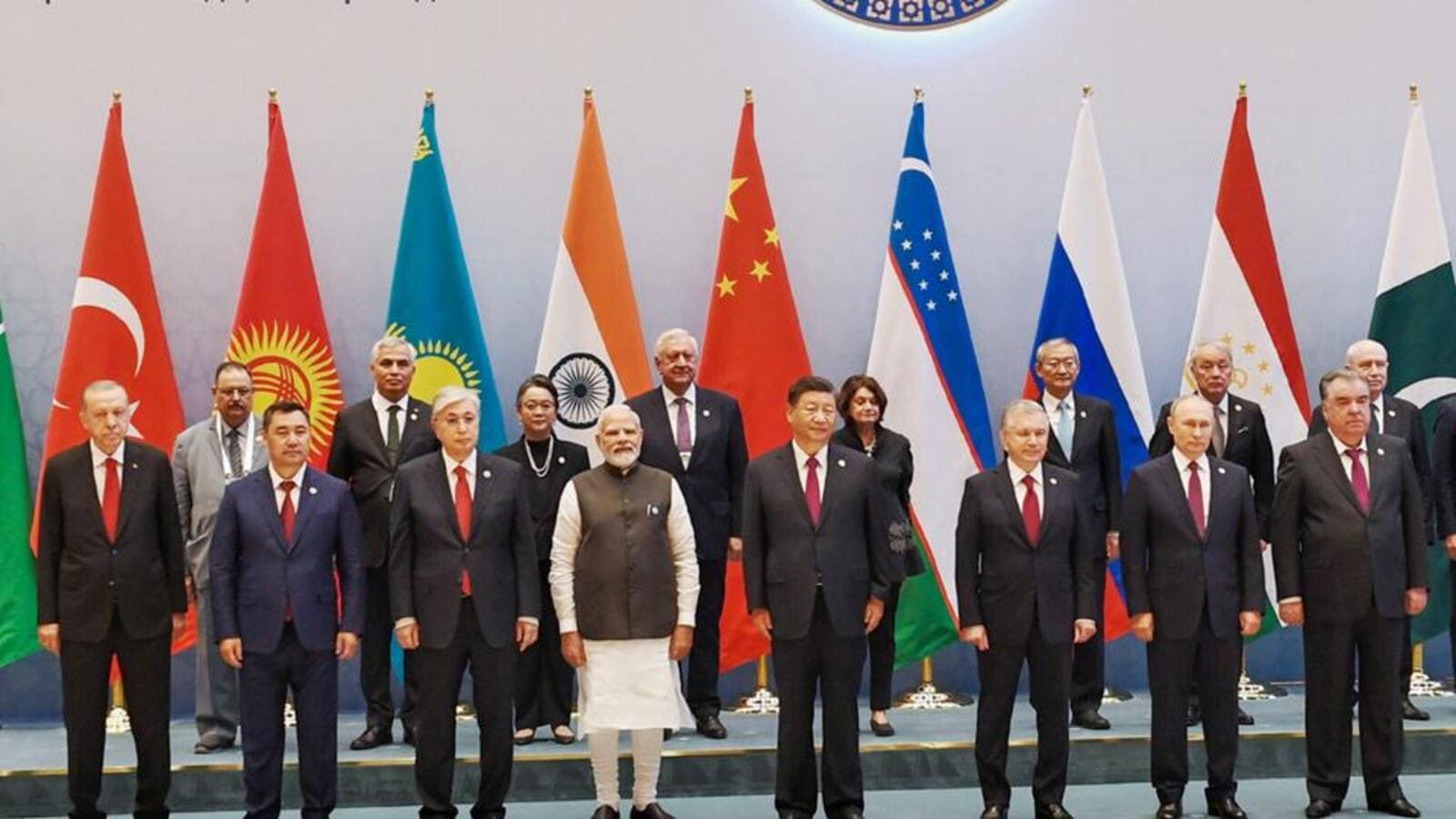Sino-India ties flip frosty as China’s home compulsions maintain sway | World News
 Sino-India ties flip frosty as China’s home compulsions maintain sway | World News
[ad_1]
Sino-India ties flip frosty as China’s home compulsions maintain sway | World News
[ad_1]
BEIJING: Home political compulsions in China forward of an all-important management reshuffle in October might be the rationale why there was no assembly between Indian Prime Minister Narendra Modi and President Xi Jinping on the sidelines of a regional summit within the central Asian metropolis of Samarkand in Uzbekistan.
Chinese language consultants, nevertheless, say the rationale behind the a lot talked about assembly not happening is India’s insistence on disengagement from all factors of friction alongside the Line of Precise Management (LAC) in jap Ladakh and New Delhi’s perceived tilt in the direction of US insurance policies aimed toward containing China.
Modi and Xi didn't have a bilateral assembly on the sidelines of the twenty second Shanghai Cooperation Organisation (SCO) summit in Samarkand on Friday regardless of sharing the stage for the primary time for the reason that dragging border row erupted in April, 2020.
Given the state of ties, Modi and Xi would no less than meet for a “pull-aside” - an off-the-cuff speak - if not for a proper bilateral assembly, was the least of the expectations.
As the 2 leaders - who stood subsequent to one another for the SCO summit picture alternative - walked away with out exchanging pleasantries, the expectation of a pull-aside fizzled as effectively.
That a bilateral assembly between the 2 leaders wasn’t held indicated two issues: First, the leaders of the 2 most populous nations with two of the biggest militaries had missed a vital alternative to resolve the continued army rigidity in jap Ladakh. (The 2 had final met in-person in late 2019 in Brazil.)
Level to recollect: It's extensively believed that the 2 leaders sorted out the Doklam (Donglang in Chinese language) disaster close to the India-Bhutan-Tibet tri-junction throughout an off-the-cuff interplay on the sidelines of the G20 summit at Hamburg in July, 2017.
Second, that Modi and Xi didn't meet was a sign of the post-Galwan Valley deep chill that has settled over the ties, recognized to be tenuous at the very best of occasions.
It’s troublesome to fathom why there was no meetingon the sidelines of the SCO summit.
It's doable, nevertheless, that the choice was pushed by home compulsions.
Xi is ready to safe a precedent-breaking third time period as China’s president on the twentieth Communist Celebration of China (CPC) congress to be held in a month’s time.
He'll emerge as one in all fashionable China’s strongest leaders rivalled solely by Mao Zedong in reverence and prominence: Xi’s imaginative and prescient and thought will doubtless be enshrined within the CPC structure and an acceptable title will doubtless be hooked up to his title - on the traces of “chairman” and “paramount chief”.
So, solely a month away from buying historic glory, which chief would present any signal of compromising on territorial sovereignty, on condition that Beijing has argued that it was India which had trespassed throughout the LAC, and never - as New Delhi has constantly stated - the opposite approach spherical?
The truth that Beijing solely reluctantly admitted to the disengagement of troops final week, issuing the joint assertion hours after India had performed, and didn't admit to the final spherical of disengagement in August, 2021 matches into the narrative of China’s muscular nationalism.
Though Xi’s re-emergence as China’s strongest chief after the October congress is a conclusion debated by few, he nonetheless has to painting himself to his home viewers as a powerful chief prepared to guide China in a extra aggressive method within the coming years.
China is not going to budge an inch on territorial points (whether or not wrongly is one other matter) is the CPC narrative: The PLA’s ongoing army bluster over Taiwan is an instance.
The CPC’s India strategists would have thought that the optics of a Modi-Xi assembly in Samarkand - regardless of the final result - might be construed as a win for New Delhi. Therefore, greatest to maintain away.
China had additionally repeatedly requested India to say the “one China” coverage in official statements - within the backdrop of rigidity in Taiwan, a self-governing island that China claims as a part of its territory - in latest weeks however India didn’t oblige.
Chinese language consultants Muricas News reached out to agree that ties are in “deep freeze” however differ on the the reason why the 2 leaders didn't meet.
“The circumstances for the assembly between the leaders of the 2 nations weren't ripe. Furthermore, lots of India’s insurance policies are nonetheless in reality united with america towards China. Even when the leaders met, the environment was unlikely to be superb, so the selection was to not meet in the course of the SCO,” Lin Minwang from the Institute of Worldwide Research, in Shanghai’s Fudan College, stated.
Lin added: “The truth is, China-India relations have slipped to the bottom level. Even when the state of affairs on the Sino-Indian border might be restored to the state of affairs in April 2020, India’s diplomacy can't be restored to 2020, particularly since India has gone too far in cooperating with the US coverage of containing China.”
Hu Shisheng, from the China Institutes of Modern Worldwide Relations in Beijing, stated ties are in “deep freeze”, indicating frosty ties.
“In keeping with the Indian aspect, they're demanding retreat from all of the standoff factors (alongside the LAC). Earlier than the retreat, there will probably be no restoration of bilateral relations. To Chinese language leaders, this can be a type of coercive diplomacy,” Hu stated. “Judging from the data and logic of the elites who've mastered New Delhi’s diplomacy, I feel there's little likelihood of enchancment. Simply hope it doesn’t get any worse. I’m not optimistic about (India-China) bilateral relations,” Lin added.
[ad_2]





0 comments: